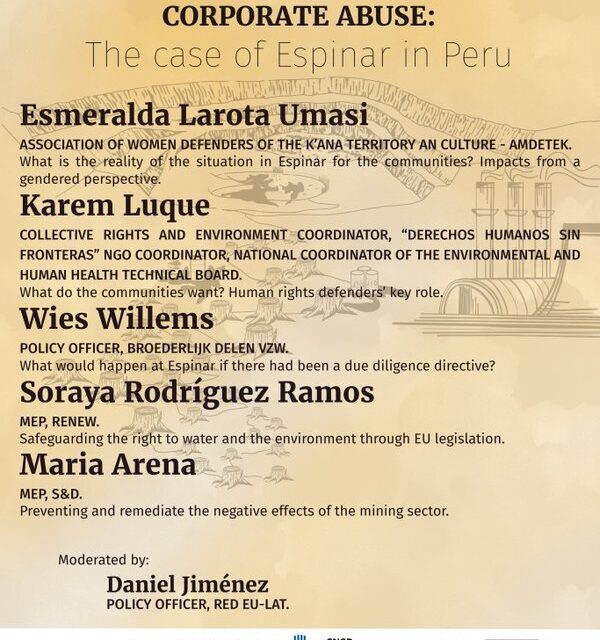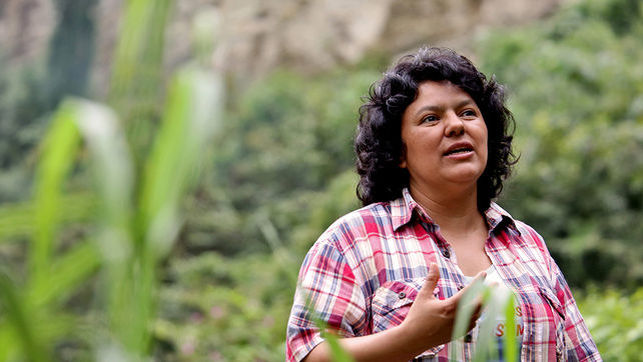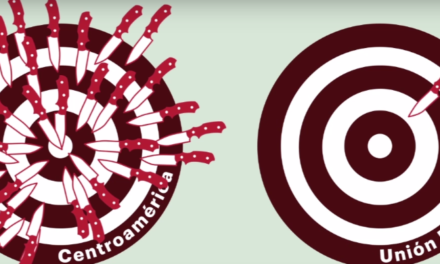On the 14th of June 2022, the EU-LAT Network organised an event in the European Parliament in the framework of the Advocacy Tour on Espinar in Peru, which was led by the Socialists and Democrats (S&D) group and the Renew group. Together with other civil society organisations and networks such as CIDSE, a debate took place in which both the Chair of the European Parliament’s human rights subcommittee, Maria Arena, and MEP Soraya Rodríguez, who discussed how to safeguard the right to water by means of European legislation, as well as about preventing and remedying the negative effects of the mining sector, both key issues in the human rights situation faced by Espinar.
The case of Espinar in Peru is particularly illustrative of this reality. The case of Espinar in Peru is particularly illustrative of this reality. Copper mining operations have been active in this area of the country since at least the 1980s ( destined for export to the European market, among others). Yet, these operations have been strongly contested by the communities living in the area, as the strong environmental impacts and pollution that have seriously affected the health and livelihoods of the local inhabitants. Various assessments have shown high concentrations of heavy metals in the blood of the inhabitants, as well as in the water for human consumption, resulting in an increase in illnesses associated with the presence of heavy metals in Espinar. It should be noted that the impacts of mining on the environment and on health unequally affect men and women, with women experiencing a greater impact due to contamination.
On the 23rd of February 2022, the European Commission published its draft Directive on Corporate Sustainability Due Diligence, a text long awaited by civil society due to its implications for the protection of human rights in regions such as Latin America. Although this text contains positive elements such as the inclusion of the entire value chain or the creation of mechanisms for accountability, transparency and the assumption of responsibilities by companies, the legislative proposal could be improved to ensure more effective protection of human rights and the environment. This discussion space in the European Parliament, as well as the whole of the advocacy tour on the case of Espinar, sought to raise awareness of the impact that legislation could have on the lives of millions of people in Latin America, as is the case of the communities of Espinar.
This event was made possible through the support of AFD.
![]()




